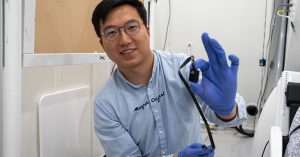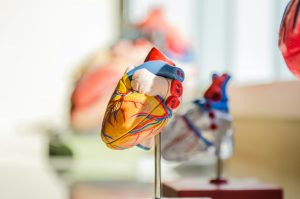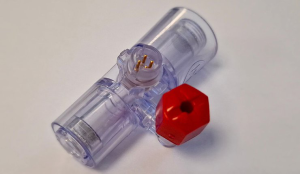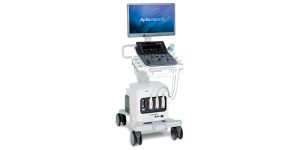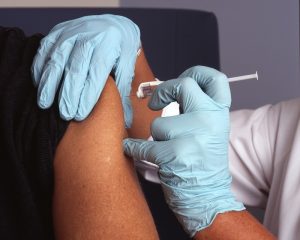By Mohammed Irshad
The profound potential of companion robots equipped with artificial intelligence emerges as a beacon of hope in combating the widespread affliction of loneliness, as indicated by an enlightening research report from the esteemed academic institutions of Auckland, Duke, and Cornell Universities.
Delving into the realm of Science Robotics, this groundbreaking report expounds upon the ethical considerations faced by governments, policy makers, technologists, and clinicians alike, urging these stakeholders to unite swiftly and devise comprehensive guidelines pertaining to trust, agency, engagement, and real-world efficacy. Moreover, it presents an innovative approach to gauging the efficacy of a companion robot in providing solace to individuals.
“While prevailing evidence currently advocates the invaluable presence of genuine human connection,” revealed Murali Doraiswamy, MBBS, FRCP, a distinguished professor of Psychiatry and Geriatrics at Duke University and esteemed member of the Duke Institute for Brain Sciences, “we must recognize that until society unequivocally prioritizes social interconnectedness and compassionate eldercare, companion robots offer a viable solution for the countless isolated individuals bereft of alternatives.”
Alarming statistics divulged by the Survey Center on American Life reveal that the number of Americans bereft of close friendships has quadrupled since 1990. Loneliness and social isolation, which plague approximately a third of the global population, exact a heavy toll on public health, heightening the risk of mental illnesses, obesity, dementia, and premature mortality. In fact, the U.S. Surgeon General Vivek H. Murthy, M.D., has gone so far as to equate loneliness with the perniciousness of smoking cigarettes.
While forging new friendships in adulthood to alleviate the anguish of isolation proves increasingly arduous, the prospect of developing companion robots tailored to the unique needs of socially isolated older adults holds considerable promise. Elizabeth Broadbent, Ph.D., an eminent professor of Psychological Medicine at Waipapa Taumata Rau, University of Auckland, emphasized, “Artificial intelligence bestows upon us the thrilling prospect of endowing companion robots with enhanced capabilities for forging social bonds. However, we must exercise caution to establish ethical principles that ensure their morality and reliability.”
Among the noteworthy social robots, ElliQ has garnered extensive experience through numerous interactions with human users, with nearly half of these engagements centered on simple companionship, such as sharing a comforting cup of tea or coffee. An ever-growing body of research on companion robots suggests their remarkable potential in alleviating stress and loneliness while aiding older individuals in maintaining their well-being and vitality within the familiar confines of their homes.
The advent of newer robots integrated with advanced AI systems holds promise for fostering even more profound connections with their human counterparts than their predecessors. Generative AI, exemplified by ChatGPT, an impressive language model, enables robots to engage in spontaneous conversations, even simulating the voices of departed loved ones and old friends.
Notably, medical professionals are largely amenable to the potential of companion robots. A comprehensive Sermo survey encompassing 307 healthcare providers across Europe and the United States revealed that 69% of physicians agreed that social robots could offer invaluable companionship, mitigate isolation, and potentially enhance patients’ mental well-being. Additionally, 70% of doctors advocated for insurance companies to cover the expenses associated with companion robots, provided they demonstrate tangible benefits as supplements to friendship. However, the challenge of quantifying a robot’s impact remains formidable.
This lack of measurability underscores the imperative of devising patient-rated outcome measures, such as the pioneering scale currently being developed by the authors—the “Companion Robot Impact Scale” (Co-Bot-I-7). This groundbreaking metric seeks to discern the impact of companion machines on physical health and loneliness, yielding promising indications that these remarkable creations may already be efficacious. For instance, early findings from Professor Broadbent’s laboratory demonstrate that affable androids contribute to stress reduction and even facilitate healing of minor wounds.
Concluding their insightful report with cautious optimism, the authors contend, “By adhering to the appropriate ethical guidelines, we can potentially build upon the existing groundwork and harness the power of robots to forge a healthier society.” Noteworthy contributors to this profound research endeavor include the esteemed scholars Mark Billinghurst, Ph.D., and Samantha Boardman, M.D., in addition to the invaluable expertise of Professor Broadbent and Dr. Doraiswamy. The latter two have served as trusted advisors to Sermo and various technology companies, while all three are esteemed co-developers of the Co-Bot-I-7 scale, indicative of their invaluable contributions to this burgeoning field.
Source: https://today.duke.edu


